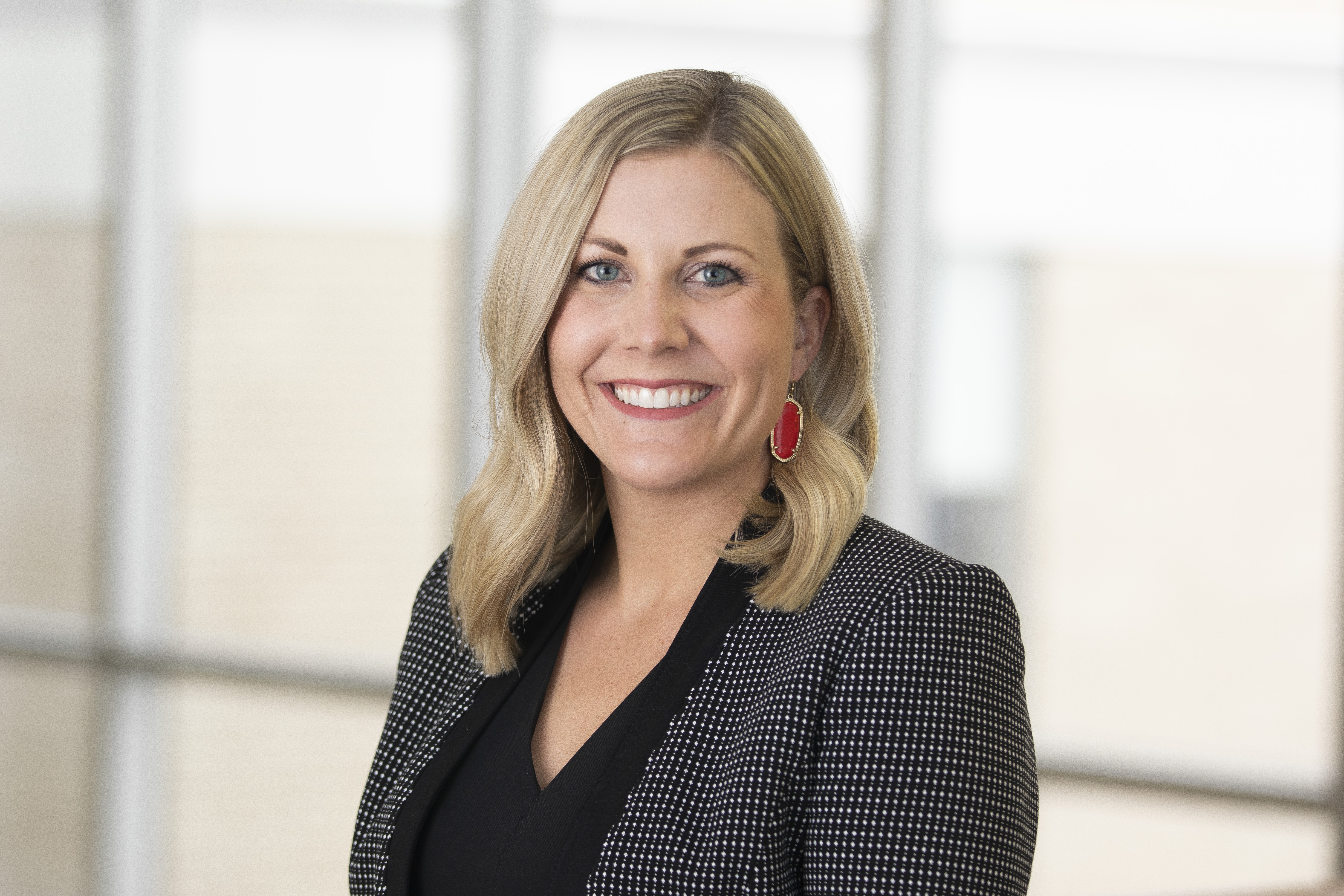For Dr. Samantha Siemers, assistant professor of agriculture at Southeast Missouri State University, teaching is best achieved through an authentic connection with students and a practical approach to helping students learn about agribusiness. Siemers says she never “talks at” her students but rather builds connections through mutual respect and engagement.
Cultivating Tomorrow’s Agribusiness Leaders: A Conversation with Dr. Samantha Siemers
Continue to main content“I want to create an atmosphere that allows them to understand the why behind the way we do things — why we raise animals the way we do, and the purpose behind it all,” she explains.

Agriculture, she notes, is an industry defined by both obstacles and possibilities. From shifting consumer demands and global trade pressures to breakthroughs in genetics and sustainability, the field is constantly evolving. Siemers sees these changes not as barriers, but as opportunities for her students to step forward with fresh ideas and learn the practical skills needed for a successful career in agribusiness.
Rooted in Agriculture
Siemers brings decades of agricultural experience to her animal science and agribusiness classrooms. The fifth-generation agriculturist was raised in Illinois, where her grandparents operated a farm and raised cattle. Those early experiences — from spending time with her grandmother on the farm to showing cattle at local, state and national competitions — instilled in her a passion for agriculture.
“I immersed myself in that lifestyle from a really young age,” she recalls. “I’d always looked up to my parents, but my grandparents in particular. I was always really close with my grandma, and so being at the farm was just something that we always did together.”
Now, she builds on that experience to help students understand both the theoretical and practical aspects of agriculture. She says her background helps her make the lessons she teaches relevant and applicable to future agricultural professionals, from ranchers and farmers to ag communication specialists and agriculture scientists.
A Diverse Student Body with Diverse Career Goals
While one might expect Siemers’ classes to be full of students with an agricultural background, many actually come from urban centers far removed from America’s ranches and farms. These students are drawn to agrarian work because they want to contribute to sustainable farming practices and protect the nation’s future food supplies.
“Most of the students in today’s agriculture classrooms are anywhere between two to three generations removed from the farm,” she says. “So maybe their great-grandparents had a farm, but their grandparents and parents are no longer there.”
Siemers believes that students are attracted to the industry due to its vast impact on today’s society and the world. “These kids come in with a purpose and a reason, wanting to give back to something that gives the world so much,” she says.
Her students are also attracted to the varied career paths agribusiness offers, as the field covers both science and business skills. The industry is a “massive umbrella, with so many umbrellas underneath,” she says. Some pursue animal science, plant and soil science, or horticulture, while others gravitate toward communications, marketing or business management. She notes that it’s not uncommon for her graduates to shift career paths multiple times, all while remaining in the agriculture industry.
Keeping Pace with a Changing Industry
The agribusiness industry is continuously evolving to meet current and future challenges. One of Siemers’ priorities is to ensure that her students are prepared to meet tomorrow’s challenges. Global trade pressures shape beef and produce prices, while shifting consumer preferences can change demand for products. All the while, advances in genetics and reproductive technologies are transforming animal science.
“Within the world of agriculture, you have to be willing to change, and you have to be willing to adapt,” she says. “Consumer preferences change regularly and producers’ preferences change regularly, so the learning just doesn’t stop.”
Siemers encourages her students to become lifelong learners. Studying abroad; keeping up with trade publications, books and podcasts; and participating in continuing education can all help graduates maintain the skills and mindset needed to thrive in an industry that’s always progressing.
Why SEMO Offers an Ideal Environment to Learn About Agriculture
SEMO’s central location in Missouri gives students a front-row seat to the diversity of America’s farming community. Situated at the crossroads of the Midwest and Mid-South, the region offers exposure to crops like corn and soybeans as well as a wide range of livestock options.
“We have access to such a variety of crops,” she says. “We are also close to urban areas like Memphis and St. Louis, where our horticulture students can gain valuable experience. It’s a unique place because students have the opportunity to learn across such a wide variety of areas they may not find at other institutions.”
SEMO also offers immersive learning opportunities for remote students through SEMO Online’s master’s in agribusiness program. Learning from the same experienced professors, these students conduct meaningful research to improve agribusiness through sustainable and regenerative practices, while gaining a solid tool kit of business and leadership skills.
Preparing Agribusiness Leaders for More Than 122 Years
Whether you’re ready to expand your expertise or pursue new opportunities, SEMO Online’s Master of Science in Agribusiness provides the tools you need to succeed. SEMO also offers a range of on-campus agriculture and agribusiness degree programs. With a legacy of more than 122 years preparing agribusiness leaders, SEMO combines history, reputation and innovation to deliver a program you can trust.
Learn from knowledgeable and experienced faculty members like Samantha Siemers who actively manage farms and agribusinesses, gain real-world experience through thesis or externship opportunities, and graduate with the skills to thrive in today’s rapidly evolving agricultural industry.
Take the first step and apply today.
Recommended Readings
What Is Agribusiness?
What’s Your Why? Dr. Moretta Burk’s Journey From Nursing to Education
Self-Esteem and Belonging in the College Classroom: A Conversation with Dr. Shawn Guiling